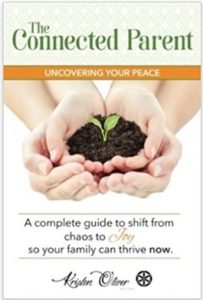I am regularly in awe of my life. Many years ago, I felt sick, overwhelmed, anxious and exhausted, not really knowing what I could do in the day to get through. After a significant amount of deep inner work, I emerged with quite a few insights and even what I would call awakenings.
I learned how my thoughts, my subconscious patterning, so strongly influenced events in my life, relationships, physical health, work and finances.
As I continued to delve more deeply into personal development, I started experiencing transformation and lasting change.
What started out as a personal journey to heal my body gave me the tools to witness amazing shifts within my family and, later, with the people I worked with in my profession as a pediatric occupational therapist.
I developed a unique methodology and 4-step process, based in neuroscience and spirituality, that I now teach in my classes, programs, retreats, individual sessions and book.
The results have been remarkable. To my delight, I’ve witnessed clients identify and release negative patterns and limiting beliefs, essentially shifting the lives of each member of their family.
I’m passionate about this work. It feeds my soul to help others move through what life offers them and to see them connect to their True Selves and create a life they love.
Here’s Kristin’s formal bio:
Drawing on her 19 years of professional experience and her 14-year inner journey, author, speaker and transformational coach Kristen Oliver, MOT, OTR/L combines concepts and practices based in neuroscience and spirituality to offer specific strategies to release negative patterns and limiting beliefs, enabling clients to permanently change their habits and create a life they love.
Kristen received her master’s degree in Occupational Therapy from Duquesne University. In addition to individual sessions, classes and retreats, she also offers online programs. She lives with her family in Charlotte, North Carolina.
Connect with Kristen at https://kristenoliver.com/
A Sample of Kristen’s Writing
from Chapter 9 of
The Connected Parent
CHOOSE—SELECT A WAY TO LET GO
The Connected Parent is filled with strategies and tools, along with stories and examples. Chapter 9 was one that I found particularly valuable. In answer to that question: Okay, What Are My Choices Here? Kristen gives this list of choices, each with a clearly spelled out method:
- Acceptance
- Empathy
- Leaning into Your Experience
- Release
- Meditation
- Forgiveness and Love
- And more!
Choose Empathy
So often, our kids just want to know that they are being seen and being heard. Who am I kidding? I want the same thing!
I love and am inspired by communication strategies and teachings based in compassion and empathy. Many teachers in this field are able to mediate between individuals or groups in conflict, allowing the perspective of all parties to be heard and those involved to feel witnessed from a place of mutual respect. With compassion, the participating parties then move toward reasonable solutions together. It’s not always easy to choose empathy if you are really triggered by something your child says or does. However, once you do some work on your stuff, genuine empathy can be a powerful tool.
Client Triumph—Hair Brushing Analysis
One Saturday, her dad got out a white board and markers, sat on her bed, and listened to what she had to say. She detailed the discomfort of getting her hair brushed and he made charts that visually exhibited what she was saying to him. They did this and other empathy-based activities that he came up with for 1½ hours! The next day, they did a variation of the same activity for 45 minutes. On the third day, she came to her parents holding a hairbrush and asking them to brush her hair.
Emily felt seen, heard and loved to the point that she shifted the longtime challenge of brushing her hair into an opportunity to bond with her parents.
Honing your empathy skills for others helps them to feel seen, heard, and loved. What more could a child want?
I would also like to take the opportunity to emphasize self-empathy. We aren’t taught in society to empathize with ourselves. Could you imagine hearing an elementary school teacher say, “Just be gentle with yourself when you make mistakes”? She could go on to say, “It is helpful to just love yourself no matter what.”
Sometimes our power comes in when we provide to our self what is most needed. For example, in a recent private session with both parents of a family of five, we were discussing how the whole family got together to make gingerbread houses as a fun holiday activity. It turned into a vortex of chaos and arguing. The mom just wanted to build strong family memories and was experiencing frustration that the kids couldn’t pull it together. So much anger came up for the dad that he walked out on the activity. In the end, the clients laughed as the mom told me she just took a picture of the gingerbread house rather than one of the family as they made it. We joked that the photo could be shown to the kids in the future when trying to prove that they did, in fact, do some family activities together.
When moments like this arise, it can be so powerful to empathize with yourself as well as with others involved. What does this sound like? Saying to yourself, “Wow, this really stinks. I can’t believe we are here again. I just wanted to complete an enjoyable family craft, and everyone is arguing and moody, including me and my husband. This stinks and I don’t like it.”
Again, there is power in choice. When you are aware that you are empathizing with, comforting and loving yourself, it’s hard to subconsciously play the victim role at the same time. The kind of energy here is one of a loving grandmother coming over to put her hand on your back.
~ from Kristen Oliver’s book The Connected Parent
You can buy Kristen’s book by clicking below:
What Kristen says about WordPlay
“When I reflect on my experience of having Maureen as a writing coach and editor of my book, the first thing that comes to mind is her gift of nurturance. I recall with a tender heart, one particular evening’s drive to her home office. As I navigated my mommy-mobile (the overly predictable silver minivan sprinkled with pretzel crumbs and flip flops), I was overwhelmed with feelings of unconditional support and love. I was in an emotional place for reasons I don’t recall. The simple thought of going to see Maureen was comforting to me. As a mentor and doula of sorts, her presence felt much like a motherly love. Even though I may have been running behind my self-imposed deadlines or feeling overwhelmed with a particular chapter, I always left my appointments with Maureen in a state of gratitude and peace, like I just received an enormous hug.
Maureen’s approach was a perfect balance of constructive criticism with ever-present encouragement. I still laugh when I recall her gently relaying that I was making similar mistakes throughout my writing. She asked if I want to learn what I was doing incorrectly or just have her continue to edit the errors. I chose the latter and also chose self-acceptance in that decision. I wasn’t given those options in high school or college, so it felt like a luxury to me. Having Maureen’s touch allowed me to focus on my intent, which was most important to me. My final thought on this topic is again one of gratitude—or Maureen’s patience, sense of humor, unending care and ability to witness and join in the creation of The Connected Parent.”


